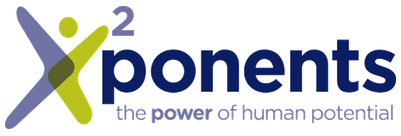Knowing what you are responsible for is an important step toward being empowered. “Whenever we seek to avoid the responsibility for our own behavior, we give away our power,” according to the author of The Road Less Traveled, M. Scott Peck. Peck goes on to say, that the greatest challenge to our human existence is distinguishing what we are and what we are not responsible for. Self-empowerment requires a daily focus for me, and at times it is easy to succumb to blaming the weather, economy, or other people for my unhappiness and dissatisfaction. Recently I’ve found an approach to identifying what I’m responsible for and it’s helped me side-step becoming disempowered. My responsibility is to: 1) know who I am, 2) live according to my values and beliefs, and 3) communicate what I want and need from my relationships.
Knowing who I am
This first element requires us to embark on a life-long process of discovery and exploration. There are unlimited facets and dimensions to who we are. My map, or how I see me in the world, was created by me out of my life experiences. Socrates said, “An unexamined life is not worth living.” Regularly examining my map helps me challenge assumptions and create a broader awareness of how my mindset drives my behaviors. As I grow and learn, ideally, I will adjust my limited view of myself. My map was originally created out of struggle. Knowing this about myself helps me to question when the voice in my head says, “it’s going to be hard” and my reaction is to panic. But it also reminds me that because I have a lot of experience in survival mode, I don’t have to keep choosing that direction. Life is a series of problems and decisions. I can choose to tell myself a new story, one about being able to do hard things without the drama and chaos. Challenge the story you tell yourself, about yourself, and create a map that serves your purpose.
Living according to my values and beliefs
Life holds more meaning when we are living in that sweet spot of who we are. One way to find that special alignment is to know what matters most. Values clarification is one way of defining what creates fulfillment, passion, and joy in one’s life. Living into those values and beliefs creates a life that is a genuine expression of ourselves and fuels a life that is worth living. Not being aligned with one’s values can make life feel empty and meaningless. Being blocked or feeling stuck, can be a signal that some values may not be getting enough attention. It’s our responsibility to know and live our values and beliefs. If you are feeling like the fuel tank is empty, it might be a good time to clarify or revisit your values. Check out the Xponents values card sort exercise now. Work with a coach to go deeper into being empowered.
Communicating what I want and need in my relationships
Asking for what you need and want with transparency, honesty, and respect is critical to maintaining a healthy relationship with yourself, and others. Knowing who I am and living my values and beliefs is foundational to asking for what I need and want. Creating agreements with others and boundary setting is part of the reciprocity necessary to be a powerful advocate for yourself in relationships. I’ll be the first to admit that this is not an easy thing to do. Having these sensitive conversations can be uncomfortable, and even once you have communicated wants, needs, and boundaries it’s then your responsibility to hold yourself and others to those agreements. Ask yourself if your relationships could use more transparency, honesty, and respect. If the answer is yes, look for ways to have more genuine conversations about what you want and need.






